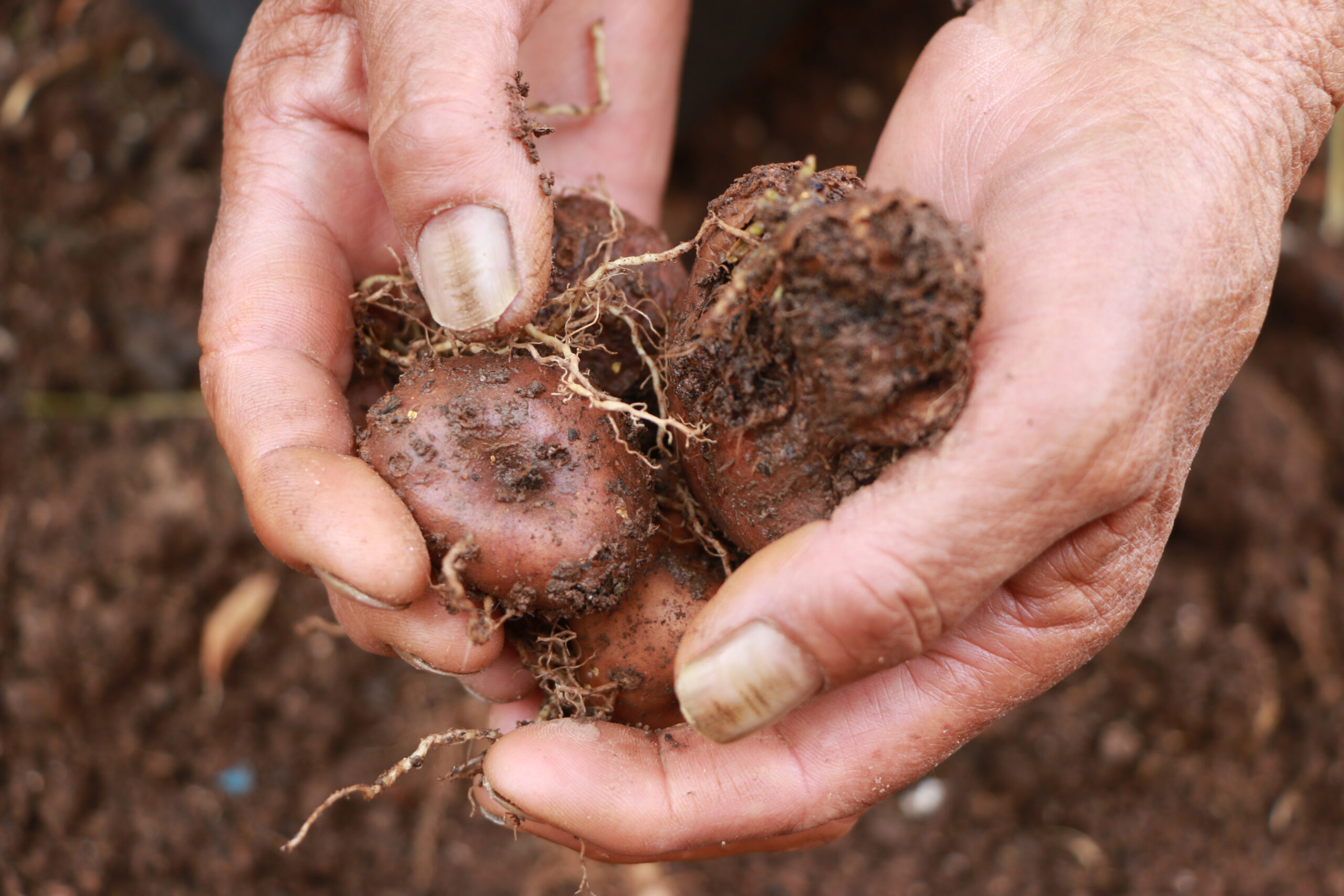September 18, 2024. – In response to the call launched in May 2024, the jury of the Challenge Fund for National Committees of Family Farming (NCFF), composed of representatives from AFA, COPROFAM, PAFO, FAO, IFAD, and WRF, has announced the selection of 12 proposals out of the 32 received. These proposals come from the NCFFs of the Democratic Republic of Congo, Tunisia, Sierra Leone, Senegal, Madagascar, Burundi, Dominican Republic, El Salvador, Paraguay, Indonesia, Nepal, and Kyrgyzstan.
The NCFF Challenge Fund, promoted by the World Rural Forum (WRF) with the support and funding of IFAD, and in collaboration with FAO, aims to strengthen the capacities of NCFFs to promote and participate in the development of National Action Plans (NAPs) of the United Nations Decade of Family Farming 2019-2028 (UNDFF) and other policies favorable to family farming. This support is key to advancing the transformation towards sustainable and resilient food systems in certain IFAD beneficiary countries.
On this occasion, the selected proposals will receive a grant of approximately USD 30,000, and the projects will have a 12-month implementation period, starting in September 2024. The funding will enable the NCFFs to strengthen their advocacy work and promote public policies in favor of family farming, aligning with the objectives of the UNDFF.
Summary of Selected Proposals
AFRICA
- Democratic Republic of Congo: It will focus on informing and training agricultural civil society on the components of the UNDFF NAP, elaborated in 2021, and advocating for its approval and enactment by the authorities.
- Tunisia: It will revitalize the role of the NCFF by strengthening the capacities of its members and working on the institutionalization of the UNDFF NAP, empowering stakeholders.
- Sierra Leone: It will support the development and validation of a draft UNDFF NAP implementation plan and define key projects through a participatory approach. Donor communities’ engagement will be promoted, and the population will be informed about the UNDFF.
- Senegal: The proposal seeks the technical and political adoption and validation of the UNDFF NAP by the competent authorities, as well as the dissemination of the plan to ensure its appropriation by the involved actors.
- Madagascar: It will support the implementation of the UNDFF NAP by strengthening knowledge among development agents and creating a national monitoring committee. It will also strengthen the functioning of the NCFF with regular national and regional meetings.
- Burundi: It will improve consultation, dialogue, and shared understanding of the importance of family farming through workshops and the creation of the UNDFF NAP, led by a multi-stakeholder UNDFF steering committee, which will be established.
LATIN AMERICA AND THE CARIBBEAN
- Dominican Republic: It will aim to strengthen the capacities of family farmers’ organizations to demand and monitor public policies, and proposals will be developed in different regions of the country to support the sector, as established in the 2019 UNDFF NAP.
- El Salvador: Key actions of the Family Farming Law will be promoted to strengthen family farmers’ production and counteract food insecurity, showcasing successful experiences and strengthening NCFF membership.
- Paraguay: It will support the strengthening of the internal structure of the NCFF and the capacities of its members to participate in the development of the UNDFF NAP, promoting political dialogue with the Deputy Ministry and supporting the participatory evaluation of the plan.
ASIA
- Indonesia: It will promote the approval of the UNDFF NAP 2024-2030 and the strengthening of NCFF relations with the government and other institutions, promoting policies that protect the role of women and youth in family farming.
- Nepal: It will seek to create a favorable political environment to strengthen and integrate family farming into the Agricultural Development Strategy at all three levels of government. Dialogue and partnerships between family farmers’ organizations and the government will be encouraged.
- Kyrgyzstan: It will support the establishment of a participatory process to implement the UNDFF NAP at the national and subnational levels, strengthening the legal and political frameworks to support family farming and promoting responsible management of natural resources.
Context and Follow-up
The call for proposals, announced on May 20, 2024, was part of a continuous effort by WRF and IFAD to support NCFFs in their crucial role in developing National Action Plans (NAPs) and other public policies in favor of family farming. Since its creation in 2013, within the framework of the International Year of Family Farming 2014, WRF has worked to support these Committees, whose role remains fundamental, as recognized by the UNDFF resolution (A/RES/72/239) and its Global Action Plan.
The NCFF Challenge Fund has had previous editions in 2016, 2017, 2018, and 2021, each contributing significantly to promoting public policies in favor of family farming. This fund is a vital tool for NCFFs to strengthen their advocacy capacity and promote proactive policies in their respective countries.
Next Steps
Projects will begin implementation in September 2024 and will be monitored by WRF and IFAD to ensure the objectives are met. We are confident that, with these initiatives, NCFFs will significantly contribute to strengthening family farming for the transformation towards sustainable and resilient food systems.
Related news:
- LAUNCHING THE 5TH CALL FOR PROPOSALS OF THE CHALLENGE FUND FOR NATIONAL COMMITTEES OF FAMILY FARMING (2024)
- Launch of the call for proposals 2021: National Committees of Family Farming Challenge Fund (2021)
- 3RD CALL FOR PROPOSALS TO THE CHALLENGE FUND FOR NATIONAL COMMITTEES FOR FAMILY FARMING (2018)



